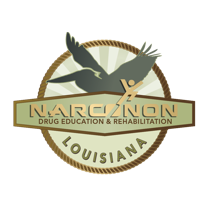NARCONON’S VIEW ON “PASSIVE DEALERS”
At Narconon, through the years, we have come to discover that there are many kinds of “drug dealers”. There are the obvious dealers on the street, who are usually quite easy for law enforcement to get their hands on. Society is quick to agree that these people should be locked up. However, there are other dealers, whom we have come to call “passive dealers”. Though these dealers aren’t lurking the streets or joining gangs and don’t usually wind up in jail, considering the following facts, they are causing damage.
SAMHSA (The Substance Abuse and Mental Health Services Administration) reported that the number of Americans who using opiate pain relievers non medically went from 11 million in 2002 to 12.5 million in 2009. What’s more, the majority of these users reported that they didn’t get these drugs from their doctor. Rather, friends, family members or dealers were the suppliers. Obviously, some of these “friends” and family members got their opiates from medical doctors. The staggering sales stats tell the story.
Also, according to this article in Join Together, emergency room visits for opioid misuse doubled in the last 4 years and the number of fatal overdoses has increased.
It’s obvious that something needs to be done. Doctors have to be more responsible to ensure that the pain prescriptions they write don’t wind up in the wrong hands. This is why doctors have recently come up with agreements with their patients. These “pain contracts” warn patients not to give away their prescriptions. These kinds of actions are critical if we are to revert the stats. Pretty obvious – isn’t it?
Apparently, some doctors have decided that these agreements can be “harmful” to the patient doctor relationship if not presented in the same way.
Regardless, the purpose for these contracts cannot be lost.
“A group of physicians and experts on pain policy have published an article arguing that while opioid treatment contracts between patients and their physicians can be useful, they can be harmful for the patient-physician relationship unless presented in the right way, American Medical News reported Dec. 27.
Doctors use the agreements — also known as “pain contracts” — to warn patients not to give away or sell their prescription pills. According to American Medical News, other physicians treating patients for pain have undergone “high-profile prosecutions,” and the contracts are seen as a way to protect physicians from liability.”

